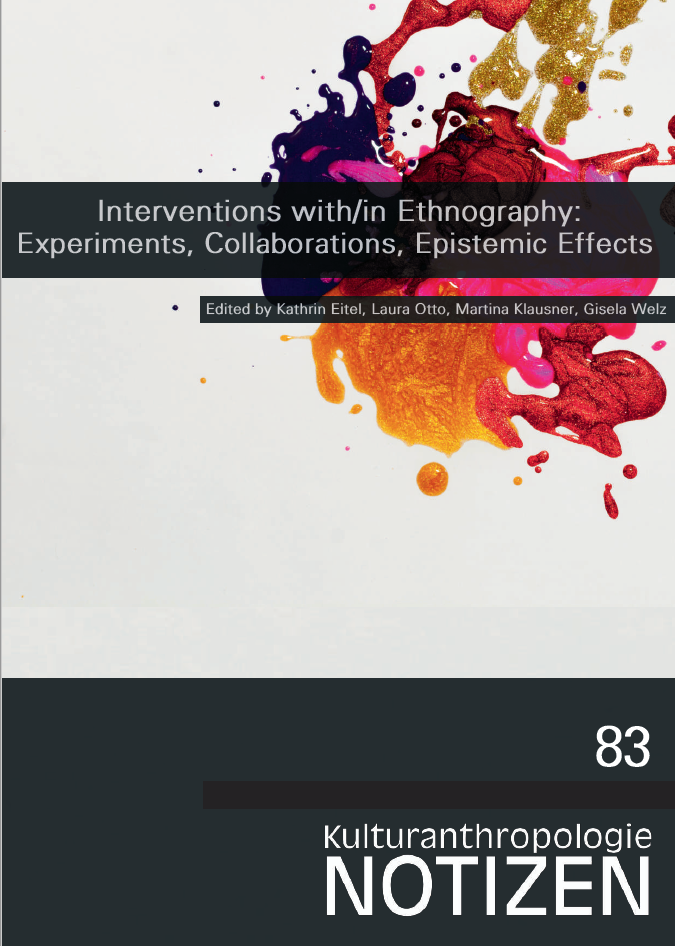Kulturanthropologie als Veränderungswissenschaft
DOI:
https://doi.org/10.21248/ka-notizen.83.6Keywords:
digital transformation, 4. Industrial-Cultural Revolution, social networks, cultural genesis, new social, crisis of contexts, new formats of cooperation, conflict, and consensusAbstract
It is a common adage: our world is transforming. But what is transforming or is being transformed? By what, by whom, why? Cui bono? Do we live in a world of “creative coincidences“, of which physicist Klaus Mainzer (2007, own translation) speaks? Or does it distract from the “selfish genes” emphasized by British biologist Richard Dawkins (1976)? Does transformation happen or is it made? Are ‘egoisms of culture’, of the market, of the economy involved? Whence do they come? What is their purpose in the face of global demands for cooperation and consensus? And what to do when it turns out that the conditions of upheaval are man-made and brutal and violent, as Saskia Sassen described in her book “Expulsions” (2014; 2015 published in German titled “Ausgrenzungen”). Or, if we are intentionally changing ourselves, our bodies, our ways of being, our ways of thinking, are we engaging in cyborgization (Haraway 1991)? Does science then need to become explicitly political? Should the first steps be an “experimental respecification of sociality with digital technologies” (Marres & Gerlitz 2019, 3, note 1)? With these questions, I emphasize the roles of changing and making in my essay. The text is a plea for a cultural anthropology that addresses the reproductive practice of humankind as well as cultural, social, communication, urbanization practices, creativity, machine and technological developments.
Downloads
Published
How to Cite
Issue
Section
License
Copyright (c) 2021 Kulturanthropologie Notizen

This work is licensed under a Creative Commons Attribution-NonCommercial-ShareAlike 4.0 International License.




